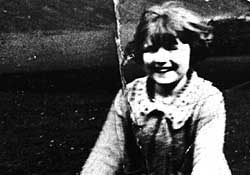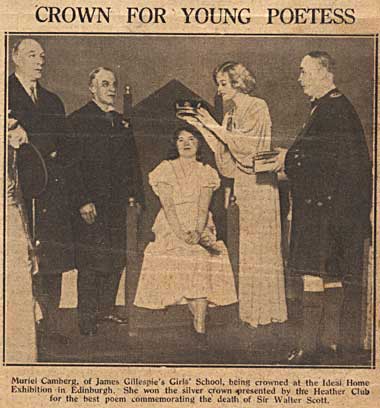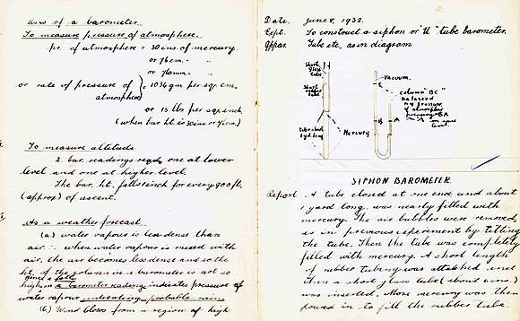Doctors of Philosophy (14 page)
Read Doctors of Philosophy Online
Authors: Muriel Spark

CHARLIE.
Someone go and ring the doctor.
CATHERINE.
It’s unnecessary to ring the doctor. He’s still breathing.
CHARLIE.
My wife’s gone mad. Of course we must have a doctor. Leonora — the number’s on the thing. — The National Health doctor, of course.
LEONORA
goes out.We’ll have to work on him, I suppose.
D
APHNE.
I know what to do. Stand back, everybody.
C
HARLIE B.
I don’t know that he hasn‘t gone, Miss.
D
APHNE
administers first aid to
YOUNG CHARLIE,
pumping and breathing.
M
RS.
S. She’ll lose it, if she goes on like that.
(Exit.)
CATHERINE.
Let me take a hand, Daphne, I know what to do.
D
APHNE.
You’re not going to touch him.
C
HARLIE B.
He’s opening his eyes. Not before time.
L
EONORA
returns, with towels.
C
HARLIE.
The doctor coming?
L
EONORA.
No, I funked it. Doctors get aggrieved at night, unless there’s an emergency.
CATHERINE.
You are quite right, Leonora.
C
HARLIE.
This is an emergency. Get off that man at once, Daphne.
L
EONORA
(to
CHARLIE BROWN)
I’d go and get dry in the kitchen if I were you, Charlie.
C
HARLIE B.
You’re not in my shoes now, Doctor. This is real-life drama. I want to see the outcome.
D
APHNE.
He’s closed his eyes again.
Enter
MRS. S
. with hot drinks.
M
RS.
S. Guess what Annie’s doing.
CATHERINE.
Changing into something suitable.
D
APHNE.
Charlie, are you all right?
Y
OUNG CHARLIE.
Carry on, it’s lovely.
CHARLIE.
Daphne, stop kissing him in that obscene way in the full electric light. Sit up, Charlie. Daphne, remember this man is an attempted suicide, and suicide is a mortal sin. I’d better get him upstairs and out of his things.
D
APHNE.
Are you all right, Charlie?
Y
OUNG CHARLIE.
Oh yes, I mean horribly wet. … Cheers.
(Walks out.)
D
APHNE
(to
CHARLIE BROWN).
Don’t forget to take my tape recorder to Kensington tomorrow, Charlie, whatever you do.
C
HARLIE.
Don’t forget to remove the tape, Catherine, whatever you do.
(Goes out with
DAPHNE.)
Enter
ANNIE
.
ANNIE
. Has the press arrived ? Have the police been? Has the doctor come?
CATHERINE.
No, there was no need to dress up.
A
NNIE.
I was thinking entirely of young Charlie’s interests. I would have been arrested instead of him, I would have been photographed instead of him.
CATHERINE.
You did that marvellously, Charlie.
C
HARLIE B.
I thought the young fellow did a good turn. Looked real drowned.
A
NNIE.
Catherine, you’re brilliant! Charlie, you’re a hero and a marvellous actor. I saw through the whole thing immediately.
CATHERINE.
Well I thought it was time I did something dramatic for a change. Charlie, go and get dry.
MRS.
S. I can lend you an old coat that’s been chucked out. As soon as I saw that bit of Queen’s Velvet I knew it was a frame-up. Young Charlie always puts his private and personal communications to Daphne on Basildon Bond, as I know for a fact. Where would he a got Queen’s Velvet at this time of night? He got it off you, Mrs. D. Come on, Charlie.
Exit with
CHARLIE BROWN
.
L
EONORA.
Catherine, it was a splendid arrangement.
A
NNIE.
Did you see through it too, Leonora? Never mind, Catherine, you’ve made a brilliant start. When you’ve had more experience of staging things, nobody will see through anything.
L
EONORA
(looking at the note).
You’ve got the accents of the Greek all wrong.
CATHERINE.
It was supposed to be young Charlie’s Greek, Leonora. I believe in dramatic realism.
L
EONORA.
English would have been more realistic as he hasn‘t got any Greek.
CATHERINE.
But less dramatic.
Enter
CHARLIE
BROWN
dressed in an old coat followed by
MRS. S.
Put down some whisky, Charlie.
CHARLIE B.
Ta. Congratulations, everyone.
LEONORA.
We’ll drive you home, Charlie.
CHARLIE B
. Got the van outside. I’ll be home in two minutes, just round the corner. Better not keep my friend waiting. I got engaged to my friend today.
CATHERINE.
Congratulations, Charlie.
LEONORA.
Who is it, Charlie?
CHARLIE B.
The widow, she wanted me, so I thought she might as well have it her own way.
ANNIE.
I always say, Charlie, it’s a woman’s world when all is said and done.
(Raising glass.)
To Charlie.
C
HARLIE B.
Thanks. Ta-ta. Nice roses.
(Exit.)
CATHERINE,
LEONORA
(raising glasses).
Charlie.
MRS. S
. I must sit down to this.
(Sits down and raises glass.)
Charlie.
THE CURTAIN FALLS
THE END
Dame Muriel Spark (1918–2006) was an acclaimed Scottish novelist, short story writer, and poet whose rhythmic prose and penchant for dark comedy made her one of the twentieth century’s most distinctive writers.
Spark was born Muriel Sarah Camberg on February 1, 1918, in Edinburgh, Scotland. Her engineer father, Bernard, was Scottish, while her mother, Sarah Elizabeth Maud, was English family. Their mixed-faith background would fuel many of the moral concerns of Spark’s later novels. Spark was raised in Edinburgh and from an early age attended James Gillespie’s High School. There her education was closely guided by an idiosyncratic teacher named Christina Kay, the inspiration for the title character in her best-known novel,
The Prime of Miss Jean Brodie.
After school, Spark worked as a department store secretary, taught English, and took college courses before meeting Sydney Oswald Spark, whom she married in 1937. Sydney Spark had a teaching job in Rhodesia (now Zimbabwe), and Spark followed him there to get married in 1937. In 1938 she gave birth to a son, Robin. However, Sydney suffered from mental illness and was physically and verbally abusive. Spark left her husband, taking her son and his nanny with her in 1940, but because of World War II’s travel restrictions, she was unable to return to Britain until 1944.
Once arrived, she settled in London, where she worked for the Foreign Office; after the war, she took on a series of writing and editing jobs, mostly for literary and trade magazines. She was the editor of
Poetry Review
for a few contentious years, until her insistence on searching out unknown poets and paying them for their work caused discord. It was while editing a collection of letters by Cardinal Newman that Spark began to explore Catholicism, eventually joining the Roman Catholic Church in 1954.
After nearly collapsing under the pressures of poverty, loneliness, and an addiction to Dexedrine, Spark sought help for her drug use and began to work seriously on a first novel,
The Comforters
(1957), partly with the financial and emotional support of the novelist Graham Greene. Though a late fiction writer, Spark began producing novels and stories at a rapid pace. In 1961 she wrote
The Prime of Miss Jean Brodie
, widely considered her masterpiece. The novel follows a teacher at a girls’ school who carefully and manipulatively cultivates the minds and morals of a select handful of promising pupils. In 1969, it was adapted into an Academy Award–winning film starring Maggie Smith and was a Royal Command Performance.
Many of Spark’s novels were brisk, black comedies with vivid characters and subtle moral underpinnings, partly influenced by Spark’s interest in religion.
The Mandelbaum Gate
(1965), for instance, is set in Jerusalem during the Adolph Eichmann trials, which she covered for the observer newspaper.
The Only Problem
(1984) draws from the Book of Job, while
The Takeover
(1976) skewers shallow religious conviction. Aside from questions of faith, novels such as
Territorial Rights
(1979) and
Reality and Dreams
(1996) center on protagonists that search for a moral center.
Spark lived for a time in New York City, where she was given an office at the
New Yorker
. The city was the setting for her novel
The Hothouse by the East River
(1973). She lived in Rome for many years writing short and more experimental novels until she moved to Tuscany, where she would live for the final thirty years of her life with her assistant and friend, the painter and sculptor Penelope Jardine. Spark regularly published throughout these decades, garnering many honorary degrees and was made a Dame of the British Empire in 1993, a Commandeur des Artes et des Lettres in 1996, and an Honorary Member of the American Academy and Institute of Arts and Letters in 1978. She died in Tuscany in 2006.

Spark as a child. She began attending James Gillespie's High School for Girls at the age of five.

A 1930 school photograph of the junior class of James Gillespie’s High School for Girls. Spark is seated in the middle row, second from the right. Also pictured, in the middle, is the teacher who was the inspiration for Spark’s Miss Jean Brodie, Miss Christina Kay.

A 1932 newspaper clipping of Spark being crowned the “Queen of Poetry” for winning first prize in a poetry competition. She was crowned by Esther Ralston, a popular silent film actress of the day.

